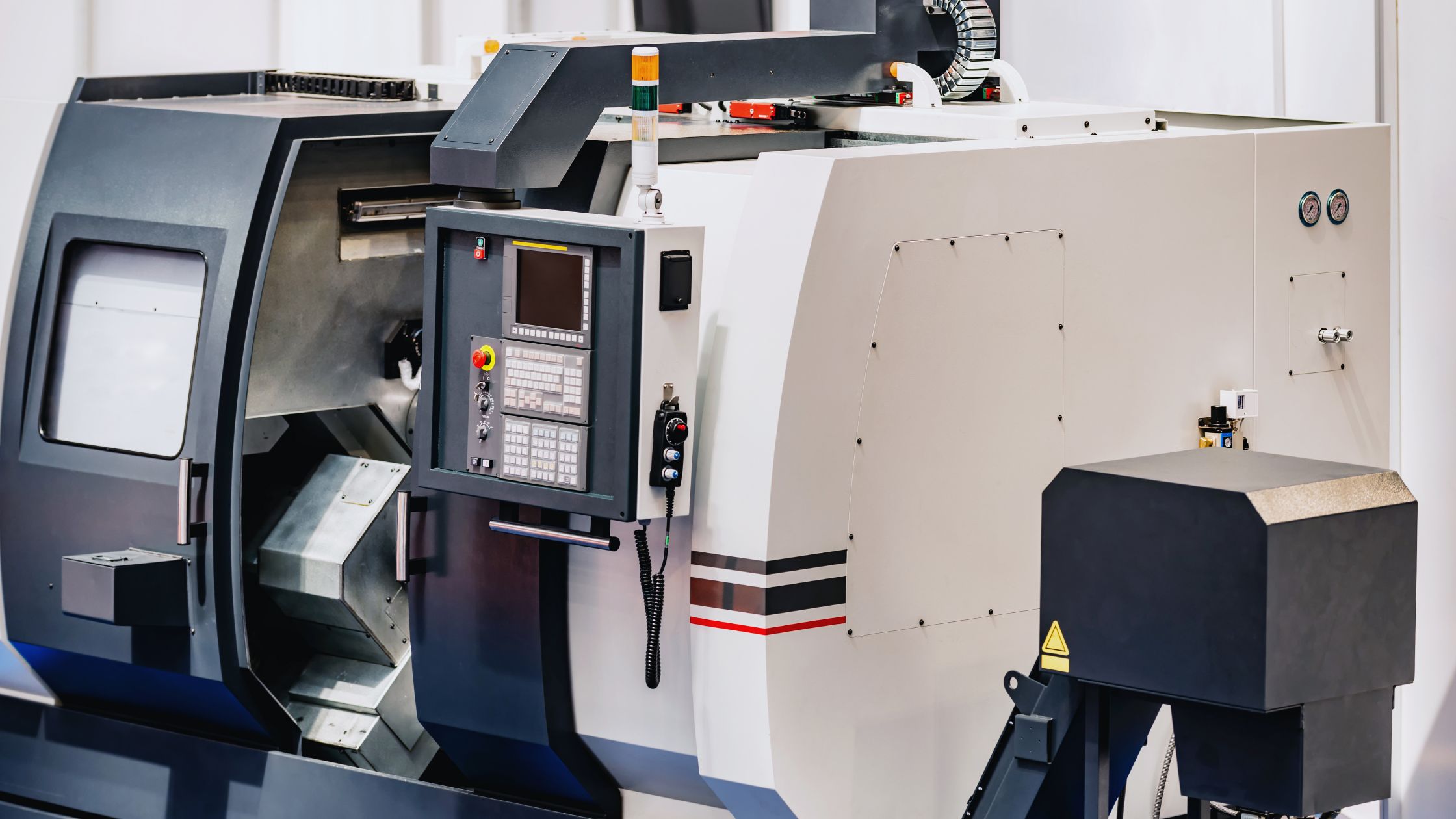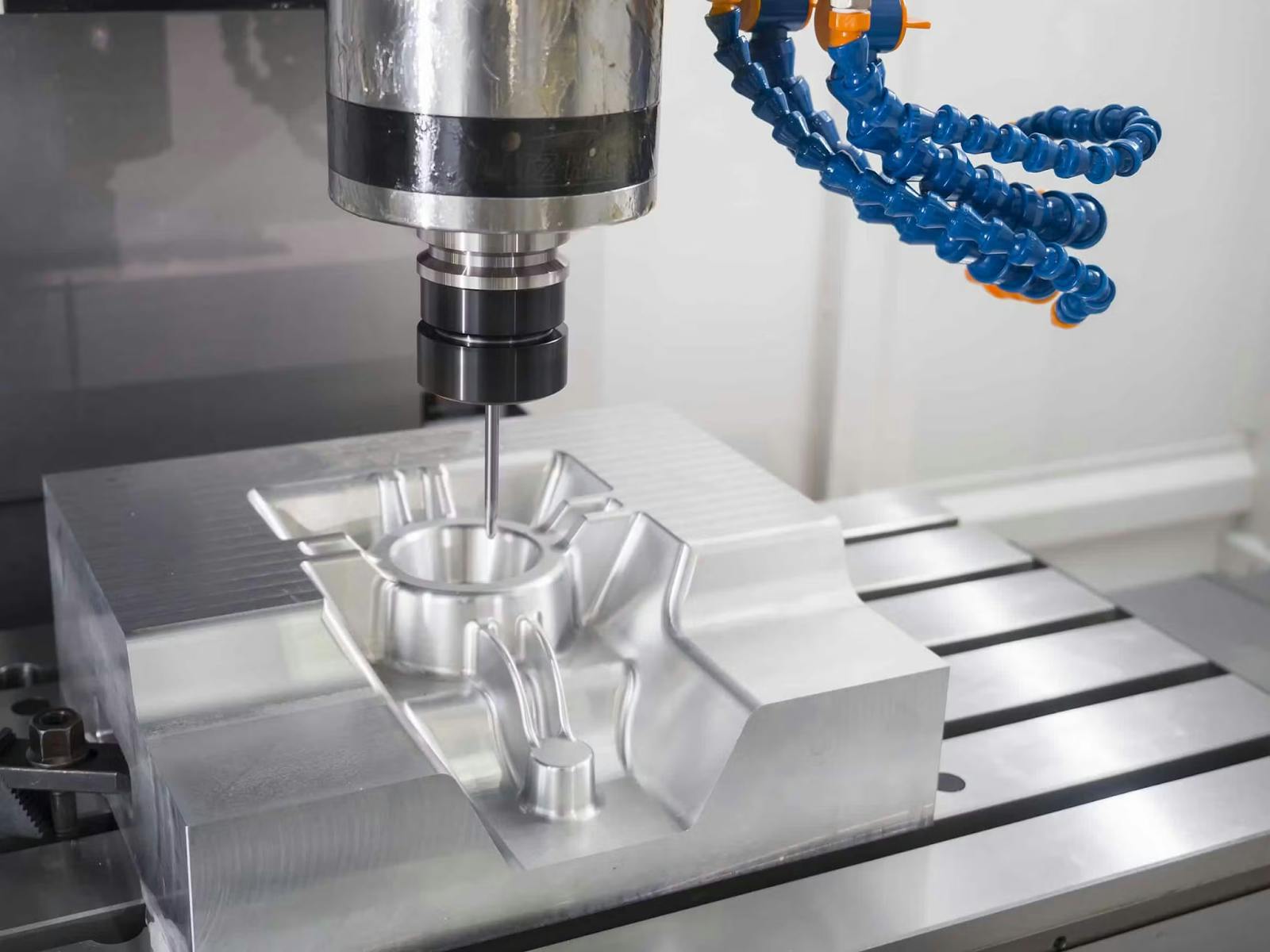Top 10 benefits of jig and fixture tooling for production lines
Boost Your Manufacturing Top Quality With Professional CNC Machining Services in Milling and Turning
CNC machining solutions in milling and turning offer significant benefits for producing operations. These procedures ensure precision and efficiency, essential for generating high-grade elements. With sophisticated technology and competent machinists, companies can achieve premium surfaces and elaborate designs. Recognizing the subtleties of these services is vital for optimizing their advantages. What variables should firms take into consideration when picking the appropriate CNC machining companion?
Comprehending CNC Machining and Its Advantages
Although several producing processes exist, CNC machining attracts attention because of its accuracy and effectiveness - tool and die maker. This innovative manufacturing strategy utilizes computer-controlled makers to produce complex get rid of very little human treatment. By automating the machining process, it greatly minimizes the chance of human error, making sure consistent high quality across manufacturing runs
CNC machining offers many benefits that appeal to various markets. To start with, it fits complicated layouts that traditional methods may have a hard time to attain. Additionally, the rate of manufacturing is boosted, permitting quicker turnaround times and enhanced outcome. Furthermore, CNC machining is flexible, appropriate for a variety of products, consisting of plastics, metals, and composites.
In addition, the procedure enables simple modifications, allowing fast prototyping and personalization without substantial retooling. Consequently, businesses can respond quickly to market needs, making CNC machining a vital component of contemporary manufacturing approaches.

The Value of Precision in Milling Processes
Precision is vital in grating procedures, as it directly affects the accuracy of the end product. The selection of products also plays a considerable role, impacting just how well the machining procedure satisfies specified resistance standards. Recognizing these elements is important for achieving excellent lead to CNC machining.
Role of Accuracy
Attaining high levels of accuracy is crucial in milling processes, as also the smallest inconsistency can lead to significant mistakes in the last product. Accuracy in CNC machining straight affects the performance, performance, and long life of the manufactured parts. Accurate grating guarantees that tolerances and dimensions are satisfied, which is crucial for components that must fit together effortlessly in setting up or run under details problems. Additionally, the role of accuracy encompasses minimizing waste and remodel, consequently boosting total manufacturing performance. Advanced CNC equipments equipped with innovative software and tooling contribute to attaining the necessary precision. By focusing on precision in milling, manufacturers can guarantee premium results that meet strict market standards and client expectations.

Material Option Effect
Material choice plays an important role in the milling procedure, influencing both the high quality of the end product and the effectiveness of manufacturing. Different products exhibit one-of-a-kind residential properties such as hardness, tensile toughness, and machinability, which directly affect the milling strategy utilized. As an example, more difficult products may call for specialized tools and slower feed prices to avoid device wear and maintain precision. Alternatively, softer materials can be crushed at higher rates yet might lack resilience. Furthermore, the selection of product can affect surface finish and dimensional precision, demanding careful consideration by makers. Inevitably, selecting the suitable product not just boosts product performance however additionally optimizes the milling process, decreasing waste and boosting total performance.
Resistance Criteria Importance
While the option of products is crucial, adherence to resistance standards is equally crucial in CNC machining processes. Resistance requirements determine the allowable limitations of variant in measurements, making sure parts fit and operate properly. In milling and turning operations, accurate tolerances enhance item top quality, lower waste, and decrease rework. When resistances are properly maintained, manufacturers can achieve consistent outcomes, which is crucial for sectors such as aerospace, automotive, and clinical tools, where precision is paramount. Deviations from established standards can lead to assembly issues, compromised efficiency, and raised prices. Consequently, understanding and executing appropriate tolerance standards is fundamental for any CNC machining service looking for to keep high manufacturing top quality and satisfy client requirements properly.
Enhancing Performance With Advanced CNC Transforming
Advanced CNC turning techniques significantly enhance performance in component development by guaranteeing high accuracy in manufacturing. This boosted accuracy not only boosts the overall top quality of the parts created yet likewise adds to minimized manufacturing time. Because of this, suppliers can accomplish better output while keeping stringent high quality criteria.
Precision in Component Creation
CNC turning modern technology has reinvented precision in component development, making it possible for producers to attain outstanding precision and efficiency. Using computer-controlled turrets, this innovative process carefully forms products right into intricate designs, making sure limited resistances that fulfill demanding specifications. The automation intrinsic in CNC transforming decreases human mistake, resulting in constantly high-quality components customized to details requirements. Additionally, the ability to rapidly customize digital designs permits rapid versions, improving the personalization of parts without compromising accuracy. Therefore, markets ranging from aerospace to vehicle advantage considerably from these improvements, as they can create intricate geometries effortlessly. Eventually, CNC turning stands as a cornerstone of contemporary manufacturing, driving precision and integrity in part production.
Minimized Manufacturing Time

Key Technologies in CNC Machining
Numerous key technologies drive the efficiency and precision of CNC machining, enabling manufacturers to produce complex get rid of high accuracy. Central to these advancements are Computer Aided Layout (CAD) and Computer System Assisted Production (WEB CAM) software program, which improve the design-to-production procedure. CAD permits intricate designs to be created and adjusted electronically, while camera equates these designs right into equipment directions.
Even more enhancing accuracy are multi-axis machining facilities, which enable reducing devices to move along multiple axes simultaneously, lowering the requirement for numerous arrangements - cnc turning service. Furthermore, improvements in tooling products and finishes have boosted longevity and efficiency, permitting far better surface coatings and prolonged device life
Automation innovations, including robotics and smart software, promote real-time tracking and changes throughout manufacturing, making sure uniformity and high quality. Jointly, these innovations not only improve manufacturing abilities but likewise contribute to the general reliability of CNC machining solutions.
The Function of Experienced Machinists in Top Quality Production
Experienced machinists play an essential function in ensuring the high quality and precision of CNC machining production. Their knowledge directly influences the outcome of producing processes, as they interpret technical illustrations, established makers, and pick ideal tools for each and every project. By having a deep understanding of machining principles, they can make real-time modifications to enhance performance and preserve tight resistances.
Moreover, proficient machinists utilize their analytic abilities to recognize and correct concerns during production, preventing problems and guaranteeing that the end products fulfill stringent high quality requirements. Their experience with different materials and machining techniques allows them to adjust to varied job demands, improving overall efficiency
In enhancement, these specialists usually team up with designers and engineers, providing valuable understandings that add to the constant improvement of manufacturing techniques. Ultimately, the significance of skilled machinists in CNC machining can not be overemphasized, as they develop the foundation of premium manufacturing procedures.
Reducing Waste and Optimizing Resources
Reliable CNC machining not only counts on the proficiency of knowledgeable machinists however likewise emphasizes the significance of lowering waste and enhancing sources throughout the manufacturing process. By utilizing advanced modern technologies and exact programming, manufacturers can reduce product waste, guaranteeing that every piece of resources is used efficiently.
Including techniques such as nesting, where components are organized to maximize product usage, can especially lower scrap manufacturing. In addition, real-time tracking of machine efficiency enables immediate changes, stopping overproduction and resource depletion.
Implementing sustainable practices, such as reusing steel shavings and utilizing environment-friendly products, adds to both cost financial savings and ecological duty.
Through these steps, CNC machining services can enhance productivity while keeping high-grade standards, ultimately resulting in a more rewarding and sustainable operation. By focusing on source optimization, businesses can attain higher effectiveness and a decreased ecological footprint in their manufacturing procedures.
Selecting the Right CNC Machining Service for Your Demands
Exactly how does one determine the very best CNC machining solution for particular task needs? Choosing the appropriate CNC machining solution includes several critical factors to consider. Initially, project specifications, consisting of material dimensions, resistances, and kinds, should be plainly defined. This guarantees that the selected solution can fulfill the technical demands of the task.
Second, examining the provider's knowledge and experience in the appropriate industry can offer understandings right into their capabilities. Examining past jobs and customer reviews can better inform the decision.
Third, examining the available innovation and equipment is essential, as sophisticated tools frequently causes greater accuracy and efficiency.
Finally, expense and turn-around time must be taken into Recommended Reading consideration to guarantee the service aligns with budgetary restrictions a fantastic read and due dates. By thoroughly examining these aspects, organizations can recognize the CNC machining solution that ideal fits their special manufacturing requirements.
Often Asked Concerns
What Materials Can Be Used in CNC Machining?
CNC machining can utilize a variety of products consisting of steels like aluminum, titanium, and steel, along with plastics such as acrylic and nylon, and compounds, supplying adaptability for various manufacturing applications and markets.
For how long Does a Regular CNC Machining Task Take?
A typical CNC machining project can take anywhere from a few days to a number of weeks, relying on elements such as intricacy, product type, style requirements, and production volume. Timelines vary based on job requirements and necessity.
Are CNC Machining Provider Ecologically Friendly?
CNC machining services can be eco-friendly, particularly when making use of efficient procedures and lasting materials. Waste decrease and energy-efficient machinery add to a lower ecological effect, making these services a sensible choice for eco-conscious production.
What Industries Commonly Utilize CNC Machining Providers?
CNC machining solutions are commonly utilized in numerous sectors, consisting of automotive, aerospace, electronics, clinical gadgets, and manufacturing. These industries rely upon precision machining for parts that need high precision, effectiveness, and repeatability in production procedures.
Exactly How Can I Prepare My Styles for CNC Machining?
To prepare designs for CNC machining, one need to ensure proper documents layouts, maximize measurements for tolerance, incorporate necessary machining features, and take into consideration material properties. In addition, supplying in-depth documentation can boost the manufacturing process's effectiveness and precision.
While the selection of materials is necessary, adherence to resistance standards is equally important in CNC machining procedures. Experienced machinists play a necessary duty in guaranteeing the high quality and accuracy of CNC machining manufacturing. A regular CNC machining task can take anywhere from a few days to several weeks, depending on elements such as complexity, material kind, style requirements, and manufacturing volume. CNC machining services can be ecologically pleasant, particularly when utilizing efficient processes and sustainable products. To prepare layouts for CNC machining, one should assure proper file formats, optimize dimensions for tolerance, incorporate needed machining functions, and think about material residential properties.